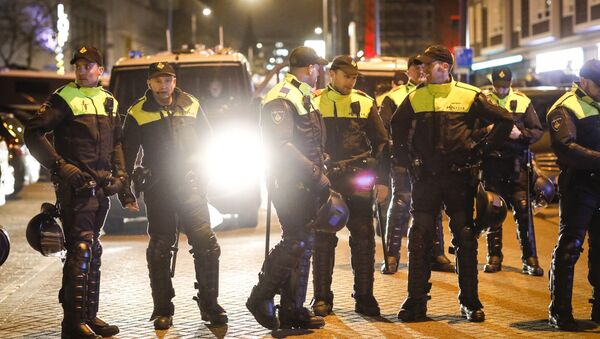MOSCOW (Sputnik) — According to the spokesman, "had this incident happened in another context, all European politicians and EU institutions would have raised hell, made one statement after another and pressured the Dutch government to correct its mistake."
"Those who advocate the "no" vote in the April 16 referendum are allowed to hold programs in the very same countries that banned Turkish ministers and politicians who campaign for "yes." By displaying such double standards, these European governments and politicians are clearly taking sides in a political campaign in Turkey. So, who is bringing Turkish political issues into Europe?" Kalin stated in his column for the Daily Sabah newspaper.
The move provoked strong criticism by the Turkish leadership, pledges of introducing sanctions against the Netherlands, and the suspension of high-level political contacts with the country. Turkish President Recep Tayyip Erdogan labeled the Dutch authorities' behavior as "Nazism," sparking criticism from the Netherlands, Germany and France, among others.
Turkey's proposed constitutional amendment would increase the presidential powers over the legislature and the judiciary and would allow the president to remain the head of the political party he represents, which is not allowed by the current legislation.


